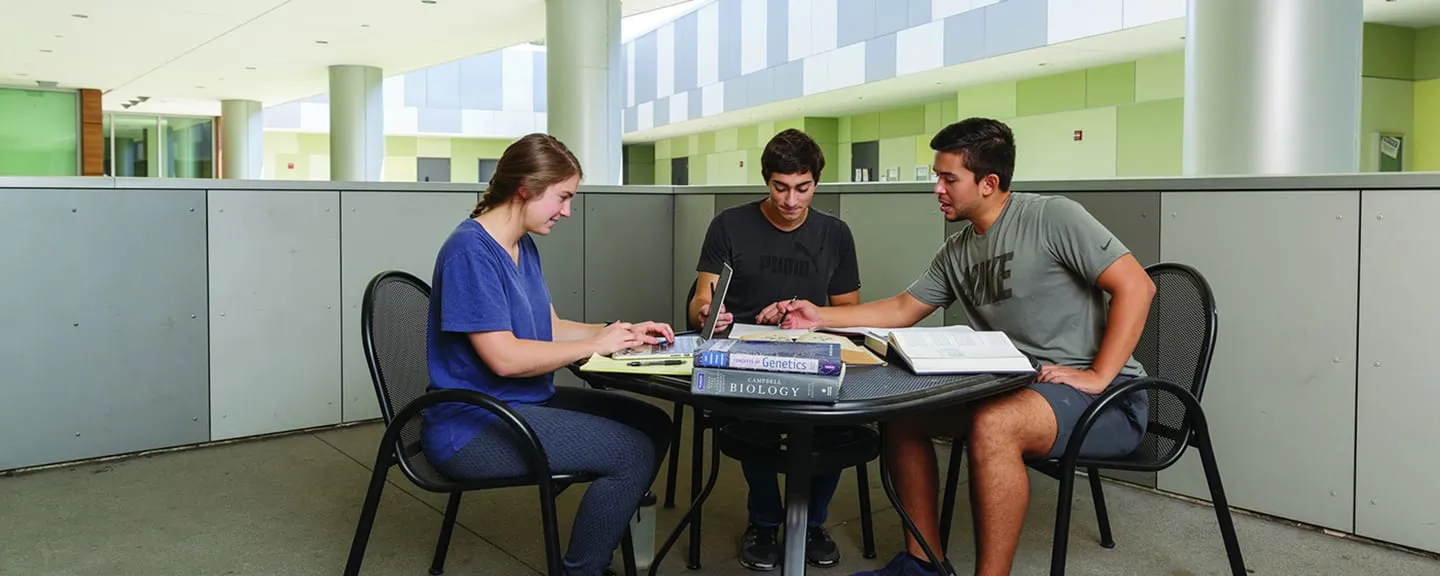- Home
- >
- APU Articles
- >
- News Article
What International Students Bring to the College Experience
April 12, 2018 | Written By John Montesi

In (and out of) the classroom, international students bring a perspective that is as important to your growth and education as anything your professors can teach you.
Measurable Benefits
Many recent studies—including a 20-year longitudinal study at Duke University—show measurable benefits in everything from self-confidence, leadership, and quantitative skills to appreciation of art, literature, and historical context. Another study from the Journal of International Students found that, “Ongoing interactions of U.S. students with their international partners positively affected U.S. students’ family and friends’ attitudes toward international students.” The report went on to explain that the relationships also benefit students as they enter the workforce. These connections “increased cultural sensitivities and skills needed to work effectively with people from different backgrounds,” which can give students “a competitive advantage in the marketplace in an increasingly interconnected, globalized world.”
Vijay Jacob, assistant director of the Office of International Students and Scholars at Azusa Pacific University, brings these ideas back to campus. “International students on campus add to cultural diversity and provide invaluable global perspectives,” he notes. At APU, students from around the world are encouraged to serve in various student leadership roles in order to help grow the global mindset of the college community.
Cultural Literacy
Beyond measurable business benefits, when students attend a college with peers from all over the world, it helps them build empathy and cultural literacy, which are key goals of the collegiate educational system. The diverse environment fosters social cohesion and supports multi-cultural understanding.
Skills can be learned in a vacuum and discussions about cultures can take place anywhere, but it is only when cultures and skills organically combine that students’ perspectives are beneficially challenged. Imagine studying United States history at the college level with peers who did not grow up in the U.S., or taking an upper-level economics class with classmates who were raised under different political and socioeconomic circumstances. In this situation, even the textbooks and lectures take on a richer and more complex meaning, simply because of who is in the room.
Better Social Life for All
It’s no secret that transitioning to college can be a bit intimidating at first. Most students arriving on campus have few—if any—pre-existing friendships, which puts everyone in the same position of curiosity and humility.
With the constant cycle of seniors graduating and new students beginning their college journeys, the spectrum of students on campus is continually changing. Students from around the world are not only on a new campus, but often arriving in a new country. Their experiences can educate peers who are struggling to transition; and as time passes, students will find themselves interacting with cultures they may not have ever had the opportunity to engage with.
Cakra Panorama, a current APU student, says, “I believe that international students add to the diversity of APU culture. We are able to add different parts of our culture to enrich the knowledge of every student in APU. In addition, we also share what we believe our countries need, and what the U.S. (and APU) can obtain from us, as well.”
The college experience encourages self-discovery and holistic human improvement. Learning about different life experiences, foods, art styles, religions, and political beliefs from people who have lived them can provide a sense of understanding that simultaneously makes the world feel bigger and smaller than ever before. And that is one of the most priceless lessons of all.